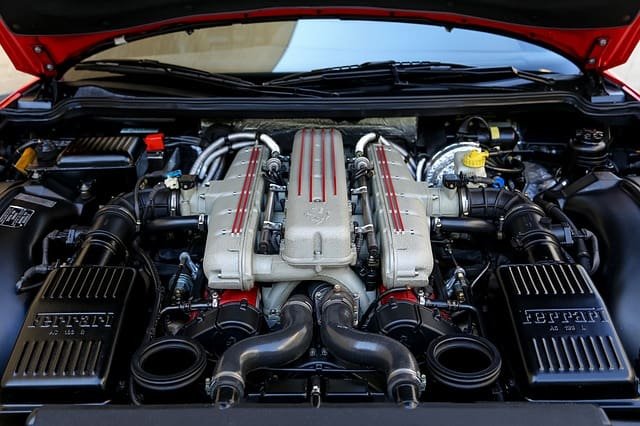Summary. Reverse engineering services decode the design and structure of products using 3D scans. Industries like aerospace, automotive, and energy employ these services to reconstruct, improve, or replicate objects. Businesses benefit by saving time, money, and remedying production faults. Central Scanning offers extensive reverse engineering solutions tailored to diverse needs.
What is reverse engineering? Reverse engineering is the analysis of an object. It deduces design features, where there is little or no additional knowledge about the procedures involved in their original production. Also referred to as back engineering, many industries use the technique to deconstruct man-made objects. Therefore, extracting knowledge and reveal an object’s core design.
By measuring a part using data captured by 3D scanning systems, components and products can be reverse engineered for further engineering. Alternatively, for the re-manufacture of existing parts by creating a CAD model to reflect how it was originally designed.
Some companies simply want to create a copy of a legacy object or make some changes to it. But reverse engineering can also be used to analyse the production methods and design of a competitor’s product. Overall, reverse engineering can save a lot of time and money. Businesses don’t need to worry about sourcing legacy files as it’s possible to create a new design file through a 3D scan. Furthermore, this process can also help to detect and fix a production fault or vulnerability and ultimately reduces the time and final cost of production.
Which industries benefit?
Reverse engineering services are applicable in many fields. For instance: aerospace, automotive, creative, energy, medical, plastic parts and tool making to name a few. For example, in toolmaking, where parts are obsolete or original spares are no longer available or fit for purpose, all parts can be reverse engineered for improving performance. The technique is also widespread in the automotive industry, where designers attempt to construct ever-more complex shapes.
The Secret Cupboard
The Secret Cupboard were producing a sci-fi music video titled ‘Not All She Seems’. They were responsible for producing all of the visual FX shots. They asked us at Central Scanning to provide a 3D scan of one of their armed guards for the purpose of reverse engineering a digital double. The process involved standing very still while a scan was taken from every angle using the Artec Eva.
The Secret Cupboard then created new topology which is optimised for animation, and mapped the details from the 3D scan onto it. This allowed them to increase the number of guards on screen. As well as, do some really fun things digitally that would otherwise have been too dangerous to do for real.
FAQ: Understanding Reverse Engineering and Its Applications
How does reverse engineering work with 3D scanning?
Reverse engineering often involves using 3D scanning technology to measure a part or object. The data captured from these scans can then be used to create a CAD model that reflects the original design of the object. This is useful for further engineering, modifying existing parts, or re-manufacturing components where original design files are no longer available.
Which industries benefit from reverse engineering?
Several industries benefit from reverse engineering services, including aerospace, automotive, energy, medical, and tool making. For example, in toolmaking, reverse engineering allows for the reproduction of obsolete parts or the improvement of existing ones. In the automotive industry, it enables designers to construct and refine complex shapes and components.
Can reverse engineering save businesses time and money?
Yes, reverse engineering can significantly save time and money by eliminating the need to source legacy files or create new designs from scratch. It also helps in detecting and fixing production faults or vulnerabilities, thereby reducing the overall production time and costs.
How is reverse engineering used in creative projects?
Reverse engineering is not limited to industrial applications; it is also used in creative fields. For example, Central Scanning provided 3D scanning services for The Secret Cupboard, a visual effects studio, to create a digital double for a sci-fi music video. By scanning a guard character from every angle, the studio could digitally replicate and manipulate the character in ways that would have been difficult or dangerous to achieve in reality.
Why would a company use reverse engineering on a competitor’s product?
Companies may use reverse engineering to analyse a competitor’s product to understand its design and production methods. This can provide valuable insights that can inform their own product development and help them improve their offerings or gain a competitive edge in the market.
What file formats are supported in reverse engineering?
Central Scanning can input and output data in a wide range of industry formats. This including STL, IGES, STEP, ASC, XYZ, TXT, PLY, OBJ, 3DS, WRL, and X_T. These files can be used in various software platforms like SOLIDWORKS, Siemens NX, Pro/E, AutoCAD, Inventor, and CATIA for further design and manufacturing processes.
Reverse engineering services | How can Central Scanning help?
At Central Scanning, we can provide reverse engineering services to take a 3D scan. After that we can release it as a CAD file ready for further modification, re-manufacture and CNC machining. We can input and output data in most industry formats including: stl, .iges, .step, .asc, .xyz, .txt, .ply, .obj, .3ds, .wrl, .x_t. We have specialised software from a variety of manufacturers including: Polyworks, Geomagic, Rapidform, Rhino CAD, SOLIDWORKS and Delcam PowerSHAPE. In addition, we can transfer parametric models to the following programmes: SOLIDWORKS, Siemens NX, Pro/E, AutoCAD, Inventor, CATIA.
To find out more about our reverse engineering services, call 01527 558 282 or fill out a form to speak to one of our experts. If you found this blog useful, why not take a look at a previous one: What Should You Know About Buying a 3D Scanner?
